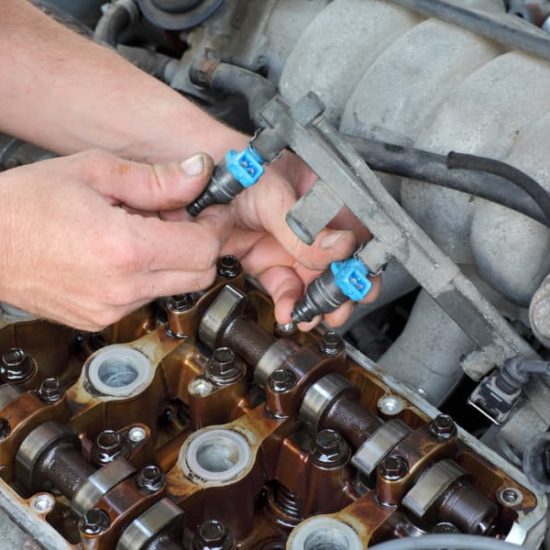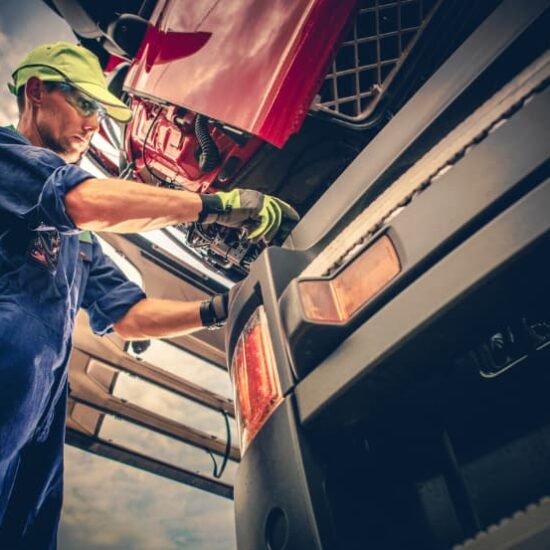How Does a Diesel Engine Work?
German engineer Rudolf Diesel created the first diesel engine in 1893, about twenty years after the production of the first gasoline-powered engine. Both engines use internal combustion to power the vehicle, but they work slightly differently. Those differences are why you’ll find lightweight vehicles using gasoline engines while diesel engines power heavier machinery such as semi-trucks, trains, farming equipment, construction vehicles, and ships.
Learn more about the differences between diesel and gasoline engines, how diesel engines work, and the automotive and diesel technology program at NYADI The College of Transportation Technology in Jamaica, NY.
How Does Diesel Technology Work?
A diesel engine works through internal combustion. The combustion comes from a mixture of air and gasoline, which moves pistons to produce energy that powers the vehicle. The process starts when pistons move down into cylinders in the engine, compressing the air inside many times over. As the pistons compress the air, it gets hotter. Fuel injectors then spray a measured amount of diesel fuel into the cylinder. How much fuel they spray will depend on how much power is needed. The hot air mixes with the fuel and ignites, pushing the pistons back up within the cylinder. That motion energizes the crankshaft, which helps to turn the wheels and power the car. The pistons then move back down into the cylinder, compressing more air and starting the process over again. This process can happen several thousands of times every minute.
What’s the Difference Between a Diesel and a Gasoline Engine?
The most significant difference between a diesel engine and a gasoline-powered one is how the combustion happens. A diesel engine’s combustion occurs when fuel meets highly compressed, hot air inside the cylinder. The heat is high enough to create an explosive effect.
A gasoline engine works similarly but with one fundamental distinction. Gasoline engines don’t compress the air inside the cylinder like a diesel engine does. Because of this, the air inside the cylinder of a gas-powered engine is less explosive. The spark plug must ignite the fuel inside the cylinder to create the combustion. So, a gas-powered engine relies on spark plugs to create an explosion, while diesel technology uses highly compressed air.
Another big difference between a gasoline engine and a diesel one is how the engine treats the fuel after combustion. Gasoline vehicles have an emissions control system that reduces fumes from the internal combustion process. A diesel engine has an after-treatment system that includes a diesel particulate filter, a diesel oxidation catalyst, and selective catalyst reduction. These components work together to turn combustion byproducts into nitrogen and water.
What Are the Benefits of a Diesel Engine?
Diesel engines are very fuel efficient. They are about 20% more efficient than gas-powered engines, which means they can deliver more power and torque than gas engines. That makes the diesel engine better suited for heavy vehicles because it can power the larger vehicle with less waste.
Diesel engines also have a longer lifespan. There is less wear and tear on the individual components of the diesel engine because they run at lower revolutions per minute (RPM) speed. Manufacturers also must build diesel engines with heavier individual components to stand up to heavy usage demands, high temperatures, and a more powerful combustion process. These more robust parts can help the engine run for a longer time without breaking down.
Less fuel waste, longer-lasting components, and no need for spark plug all translate into lower operating costs for vehicle owners. Those reduced costs can greatly benefit organizations that rely on their vehicles, such as construction, farming, transportation, and the military. These industries also need knowledgeable diesel techs to maintain, service, and repair diesel engines, and NYADI offers job search resources to help graduates find those jobs.
How Do You Train to Be a Diesel Tech?
Learning how diesel technology works is the first step to starting a well-paid career as a diesel tech. You can get your associate degree in automotive and diesel technology in just 15 months at NYADI. The program allows you to study full or part-time to suit your schedule and prepares you for ASE certification. A degree from NYADI can unlock great new career opportunities in an exciting industry constantly looking for new skilled workers. If you are interested in joining the program or learning more about available financial aid, contact an NYADI admissions representative.



